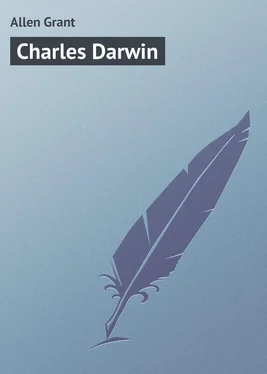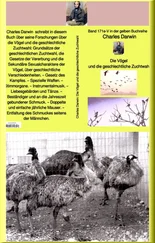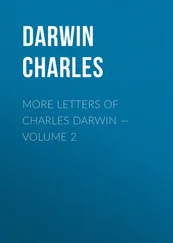Grant Allen - Charles Darwin
Здесь есть возможность читать онлайн «Grant Allen - Charles Darwin» — ознакомительный отрывок электронной книги совершенно бесплатно, а после прочтения отрывка купить полную версию. В некоторых случаях можно слушать аудио, скачать через торрент в формате fb2 и присутствует краткое содержание. Жанр: foreign_prose, на английском языке. Описание произведения, (предисловие) а так же отзывы посетителей доступны на портале библиотеки ЛибКат.
- Название:Charles Darwin
- Автор:
- Жанр:
- Год:неизвестен
- ISBN:нет данных
- Рейтинг книги:4 / 5. Голосов: 1
-
Избранное:Добавить в избранное
- Отзывы:
-
Ваша оценка:
- 80
- 1
- 2
- 3
- 4
- 5
Charles Darwin: краткое содержание, описание и аннотация
Предлагаем к чтению аннотацию, описание, краткое содержание или предисловие (зависит от того, что написал сам автор книги «Charles Darwin»). Если вы не нашли необходимую информацию о книге — напишите в комментариях, мы постараемся отыскать её.
Charles Darwin — читать онлайн ознакомительный отрывок
Ниже представлен текст книги, разбитый по страницам. Система сохранения места последней прочитанной страницы, позволяет с удобством читать онлайн бесплатно книгу «Charles Darwin», без необходимости каждый раз заново искать на чём Вы остановились. Поставьте закладку, и сможете в любой момент перейти на страницу, на которой закончили чтение.
Интервал:
Закладка:
Among those thinkers in his own line who stood more nearly abreast of Darwin in the matter of age, Lyell was some eleven years his senior, and contributed not a little (though quite unconsciously) by his work and conclusions to the formation of Darwin's own peculiar scientific opinions. The veteran Owen, who still survives him, was nearly five years older than Darwin, and also helped to a great extent in giving form and exactness to his great contemporary's anatomical ideas. Humboldt, who preceded our English naturalist in the matter of time by no less than forty years, might yet almost rank as coeval in some respects, owing to his long and active life, his late maturity, and the very recent date of his greatest and most thought-compelling work, the 'Cosmos' (begun when Humboldt was seventy-five, and finished when he lacked but ten years of his century), in itself a sort of preparation for due acceptance of the Darwinian theories. In fact, as many as fifty years of their joint lives coincided entirely one with the other's. Agassiz antedated Darwin by two years. On the other hand, among the men who most helped on the recognition of Darwin's theories, Hooker and Lewes were his juniors by eight years, Herbert Spencer by eleven, Wallace by thirteen, and Huxley by sixteen. His cousin, Francis Galton, another grandson of Erasmus Darwin, and joint inheritor of the distinctive family biological ply, was born at the same date as Alfred Russell Wallace, thirteen years after Charles Darwin. In such a goodly galaxy of workers was the Darwinian light destined to shine through the middle of the century, as one star excelleth another in glory.
Charles Darwin was the second son: but nature refuses doggedly to acknowledge the custom of primogeniture. His elder brother, Erasmus, a man of mute and inarticulate ability, with a sardonic humour alien to his race, extorted unwonted praise from the critical pen of Thomas Carlyle, who 'for intellect rather preferred him to his brother Charles.' But whatever spark of the Darwinian genius was really innate in Erasmus the Less died with him unacknowledged.
The boy was educated (so they call it) at Shrewsbury Grammar School, under sturdy Sam Butler, afterwards Bishop of Lichfield; and there he picked up so much Latin and Greek as was then considered absolutely essential to the due production of an English gentleman. Happily for the world, having no taste for the classics, he escaped the ordeal with little injury to his individuality. His mother had died while he was still a child, but his father, that 'acute observer,' no doubt taught him to know and love nature. At sixteen he went to Edinburgh University, then rendered famous by a little knot of distinguished professors, and there he remained for two years. Already at school he had made himself notable by his love of collecting – the first nascent symptom of the naturalist bent. He collected everything, shells, eggs, minerals, coins, nay, since postage stamps were then not yet invented, even franks. But at Edinburgh he gave the earliest distinct evidence of his definite scientific tastes by contributing to the local academic society a paper on the floating eggs of the common sea-mat, in which he had even then succeeded in discovering for the first time organs of locomotion. Thence he proceeded to Christ's College, Cambridge. The Darwins were luckily a Cambridge family: luckily, let us say, for had it been otherwise – had young Darwin been distorted from his native bent by Plato and Aristotle, and plunged deep into the mysteries of Barbara and Celarent, as would infallibly have happened to him at the sister university – who can tell how long we might have had to wait in vain for the 'Origin of Species' and the 'Descent of Man'? But Cambridge, which rejoiced already in the glory of Newton, was now to match it by the glory of Darwin. In its academical course, the mathematical wedge had always kept open a dim passage for physical science; and at the exact moment when Darwin was an undergraduate at Christ's – from 1827 to 1831 – the university had the advantage of several good scientific teachers, and amongst them one, Professor Henslow, a well-known botanist, who took a special interest in young Darwin's intellectual development. There, too, he met with Sedgwick, Airy, Ramsay, and numerous other men of science, whose intercourse with him must no doubt have contributed largely to mould and form the future cast of his peculiar philosophical idiosyncrasy.
It was to Henslow's influence that Darwin in later years attributed in great part his powerful taste for natural history. But in truth the ascription of such high praise to his early teacher smacks too much of the Darwinian modesty to be accepted at once without demur by the candid critic. The naturalist, like the poet, is born, not made. How much more, then, must this needs be the case with the grandson of Erasmus Darwin and of Josiah Wedgwood? As a matter of fact, already at Edinburgh the lad had loved to spend his days among the sea-beasts and wrack of the Inches in the Firth of Forth; and it was through the instrumentality of his 'brother entomologists' that he first became acquainted with Henslow himself when he removed to Cambridge. The good professor could not make him into a naturalist: inherited tendencies and native energies had done that for him already from his very cradle.
'Doctrina sed vim promovet insitam;' and it was well that Darwin took up at Cambridge with the study of geology as his first love. For geology was then the living and moving science, as astronomy had been in the sixteenth century, and as biology is at the present day – the growing-point, so to speak, of European development, whence all great things might naturally be expected. Moreover, it was and is the central science of the concrete class, having relations with astronomy on the one hand, and with biology on the other; concerned alike with cosmical chances or changes on this side, and with the minutest facts of organic nature on that; the meeting-place and border-land of all the separate branches of study that finally bear upon the complex problems of our human life. No other subject of investigation was so well calculated to rouse Darwin's interest in the ultimate questions of evolution or creation, of sudden cataclysm or gradual growth, of miraculous intervention or slow development. Here, if anywhere, his enigmas were all clearly propounded to him by the inarticulate stony sphinxes; he had only to riddle them out for himself as he went along in after years with the aid of the successive side-lights thrown upon the world by the unconnected lanterns of Lamarck and of Malthus.
Fortunately for us, then, Darwin did not waste his time at Cambridge over the vain and frivolous pursuits of the classical tripos. He preferred to work at his own subjects in his own way, and to leave the short-lived honours of the schools to those who cared for them and for nothing higher. He came out with the οἱ πολλοί in 1831, and thenceforth proceeded to study life in the wider university for which his natural inclinations more properly fitted him. The world was all before him where to choose, and he chose that better part which shall not be taken away from him as long as the very memory of science survives.
CHAPTER IV
DARWIN'S WANDER-YEARS
Scarcely had Darwin taken his pass degree at Cambridge when the great event of his life occurred which, more than anything else perhaps, gave the final direction to his categorical genius in the line it was thenceforth so successfully to follow. In the autumn of 1831, when Darwin was just twenty-two, it was decided by Government to send a ten-gun brig, the 'Beagle,' under command of Captain Fitzroy, to complete the unfinished survey of Patagonia and Tierra del Fuego, to map out the shores of Chili and Peru, to visit several of the Pacific archipelagoes, and to carry a chain of chronometrical measurements round the whole world. This was an essentially scientific expedition, and Captain Fitzroy, afterwards so famous as the meteorological admiral, was a scientific officer of the highest type. He was anxious to be accompanied on his cruise by a competent naturalist who would undertake the collection and preservation of the animals and plants discovered on the voyage, for which purpose he generously offered to give up a share of his own cabin accommodation. Professor Henslow seized upon the opportunity to recommend for the post his promising pupil, young Darwin, 'grandson of the poet.' Darwin gladly volunteered his services without salary, and partly paid his own expenses on condition of being permitted to retain in his own possession the animals and plants he collected on the journey. The 'Beagle' set sail from Devonport on December the 27th, 1831; she returned to Falmouth on October the 2nd, 1836.
Читать дальшеИнтервал:
Закладка:
Похожие книги на «Charles Darwin»
Представляем Вашему вниманию похожие книги на «Charles Darwin» списком для выбора. Мы отобрали схожую по названию и смыслу литературу в надежде предоставить читателям больше вариантов отыскать новые, интересные, ещё непрочитанные произведения.
Обсуждение, отзывы о книге «Charles Darwin» и просто собственные мнения читателей. Оставьте ваши комментарии, напишите, что Вы думаете о произведении, его смысле или главных героях. Укажите что конкретно понравилось, а что нет, и почему Вы так считаете.












